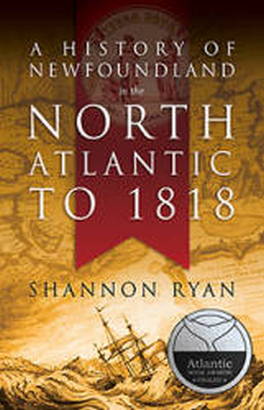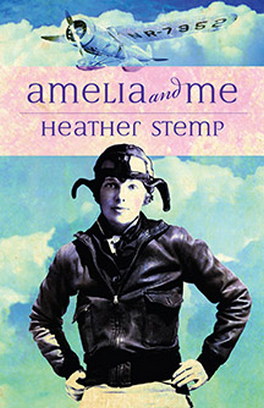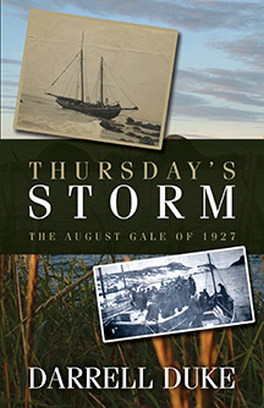In the fall of 1611, John Guy prepares to return from his colony in Cupers Cove, Newfoundland, to Bristol, England, where he plans to woo Eliza Egret, the daughter of one of the principal stockholders of the colonization venture. Guy must return, however, with a prisoner, a mysterious young man named Bartholomew, who is responsible for burning the colony’s stored grain. As the presence of a convict might cause the backers to question his leadership, Guy chooses a radical course — to use the silken-tongued Bartholomew as an ally. So Guy and his companion enter a tale of intrigue and danger reminiscent of the revenge tragedies of the Jacobean period. Long listed for the 2011 ReLit Awards
“How thrilling it all seems,” Eliza says, her snow-white hands clasped before her breast, aqua-blue eyes alive in candlelight.
I wonder if she means it this time. I have been here before and I know that, however broad her smile, however breathless her voice, I’m far from landing this particular ship. Love rests easy only when the loved one delineates one’s presence with light, one’s absence with darkness. Like an erratic diamond, Eliza sparkles in all directions at once. Once I pass from view, I know only too well she will turn the same light upon another.
“Thrilling indeed,” I mumble — distrustful mounds of air passing between my lips. “It is a splendid country, full of rich and fertile soil and rolling green. As our settlement is forty-seven degrees from the pole, three to the south of our own dear Bristol, the climate makes it a veritable Eden of warm breezes and verdant life.”
She tilts her head as though deep in happy reverie, but then her eyes widen.
“But there must be great dangers?”
“Dangers?”
Her eyelids flutter and a queasy suspicion of artifice enters my brain.
“I’ve heard of naked savages in such distant lands,” she says. Her exhalation causes the candle before us to wobble. “And of strange, fantastic beasts who devour all those who dare to approach.”
“No naked savages, dear lady. Just simple primitives willing to trade. No strange beasts. Just clean water and nature’s calm reassuring breath.”
I notice a dampening in her demeanour, but I’m eager to establish the virtues of the colony.
“The animals we brought — chickens, geese, pigs, goats, and lambs — all familiar to commonplace husbandry — took to the meadows and waters just as though they were back in England . . .”
I’m about to continue but see how all the anticipation has now drained from her eyes; her hands have slackened their clasp.
“Of course there are giant bears roaming the forests,” I venture.
Her brightness returns and she glances between me and my companion as though to confirm this is true.
“Fearsome boars with sword-like fangs,” offers Bartholomew at my elbow.
“Many strange creatures,” I add, leaning toward her, edging out Bartholomew.
“With lions’ fur but the faces of men!” chips in Bartholomew again.
“How wondrous!” Eliza gasps, looking not at me, but at my young companion. “And how lucky you men are for the chance to brave so much adventure!”
“Indeed,” I say more dryly than I had intended. For a moment I am aware of the clicking of sewing needles from Eliza’s aunt in the dim corner of the room. Mrs. Egret hasn’t looked up in twenty minutes; she is either listening not at all or listening very intently indeed.
Eliza moves almost imperceptibly closer, her air conspiratorial. “I have heard there are mermaids in the waters around Newfoundland,” she says. Her eyes have become jewels again and I know I cannot deny her. But just as I am struggling to find words to keep open the possibility of magic, Bartholomew beats me to it again.
“Silver fins and tails as far as the eye can see, my lady. The ocean is alive with them.” I catch a gasp from Helen, the pretty, tall, dark-haired maid, who is filling my cup. She skips around me to see to Bartholomew. In the corner of my eye I notice her hand trembling as she tips the jug, and I catch a motion from Bartholomew’s arm as though he thought to steady her wrist but changed his mind just before contact. Did he pass her something? I wonder. And, if so, what? Since our first visit a week ago he has been carrying on some form of dalliance with her. For me, he hastens to add when questioned. But I have yet to hear any useful information gleaned from their meetings and exchanges of notes.
Eliza smiles at Bartholomew. But this time her expression holds a touch of mischief as well as delight.
“At times,” Bartholomew continues, “we could let down a basket from the side of the ship, dip it into the ocean, then pull it back onto the deck containing several sleek mermaids, their hair braided with sea pearls, necks adorned with laces made from starfish.”
The maid has remained spellbound at Bartholomew’s side. Eliza throws her a dark look and she scurries away.
“And what would you lusty seamen do with these magical spoils of Neptune?” There is a look in her eyes as she challenges Bartholomew — direct and inviting — that I don’t like at all. I cough soberly.
“I fear young Bartholomew has daubed our experience too much with the colour of imagination.”
“Oh, don’t say that, Mr. Guy!”
Her smile is on me for the moment, but I can tell that the real channel of communication has been transferred. The conversation now flows not from me to Eliza, but from Eliza to Bartholomew.
Is it his comparative youth that demands special attention? I comfort myself with the notion that through some convoluted womanly path she might be demonstrating how fit she would be as a wife and mother. The thought corresponds with something I have read: that women shine not so much in the direction of the object of their affection but rather upon some other. This, I have also learned, is so her beauty can be fully appreciated by he who looks on, unfettered by the rigours of conversation. And, in the present situation, such an onlooker, of course, would be me. It is a pity, then, that she has chosen Bartholomew as her substitute. How could she know him to be so utterly different than he appears? Nevertheless, I draw some encouragement.
“Mr. Guy is a fine man and a true leader, Lady Eliza,” Bartholomew says, as though reading my thoughts and cutting deftly against expectation. I see through the blur in the corner of my eye Bartholomew’s arm rise as though about to descend upon my shoulders. Thankfully the young rogue thinks twice about this patronizing gesture and merely holds his hand suspended above me as though introducing this “fine man and true leader” to the world.
“Indeed he is,” replies Eliza, “and lucky he is to have a lieutenant who possesses such a loquacious tongue.”
Bartholomew dips his head in a mock-formal bow. Eliza’s eyes glisten, and my unease begins to stir again.
“Have I told you, dear lady, of the sturdy trees we have found inland?” Against my will the voice that comes from me is like a gnarled walnut shell. It has no place amid the citrus freshness of Eliza’s presence. I don’t know why I should feel suddenly so aged — I have hardly ten years on her. Could it be that my mind and body have been formed by work, business, and care, and that Eliza is the gossamer of pure idleness? In any case, my subject is to demonstrate how, in time, hard work leads to opulence and finery. I must press home my suit. “We have begun the manufacture of our own casks in which to store all manner of provisions we have gathered from land and from sea. Our beasts are enclosed by stone walls and they thrive and multiply. Soon, I hope, our farms will yield as much grain as those in Devon and Wiltshire.”
“Really, Mr. Guy,” she replies. There is no scorn in her tone, but her expression resembles one who has just sucked upon something bitter and is trying not to betray her displeasure. “You should tell dear Papa of this. He is so interested in the commercial side of the colony.”
I feel as though I’ve been reproved, caught in the act of passing a grubby sovereign to her under the table. My blunder exposed, I scramble for a footing. “Your father is a shrewd investor and he has chosen his venture well. Newfoundland is certainly a place of magic.” I let the statement hang in the air. Her attention — serious, for once — is upon me. “We have indeed spied mermaids, dear lady Eliza, near enough to confirm the sighting, but too far to make an accurate report of the creature’s full dimensions.”
The sparkle doesn’t exactly return, but something else does — a quiver in the lips, shyness about the eyes — something altogether more encouraging.
“You fascinate me, Mr. Guy, as does the bravery of your expedition, your being from England for more than a whole year.” Her voice is soft, almost sombre. Something moves below my belt, and for the moment, at least, Bartholomew is scarcely present. “But tell me, does a distant glimpse of a mermaid compensate you for being so long from home? Do you not miss civilization?”
The rustle and clink of Mrs. Egret’s knitting is the only sound in the room. I feel something momentous, a great cloud bringing either ruin or glory, gathering over my shoulders. “There is a small part of Bristol, dear Lady, which I carry with me, a place for which I will endure the vicissitudes of fate and vanquish all demons in order to ensure my own safe return. My selfless interest in this treasure has made me quite selfish, but this prize which makes me regard my own life as dear is neither earth, nor stone, nor gem.”
Eliza holds my gaze and her face is a perfection of stillness. I feel a cannonball is suspended a foot above the table and about to fall with a great thundering crash. “Why, Mr. Guy,” she says, her manner larger than before yet distinctly more distant, “a riddle! Do you desire me to guess its answer?”
Hesitancy creeps into the muscles of my face. I’m stuck for a reply.
“Come, young master Bartholomew, lend me the torch of your keen observation so that I may peer into the profound depths of your worthy leader.”
Her eyelids flutter again, but now they are less butterflies than shields. They are still decorated with patterns of conviviality, but seem designed to ward off that which is unwelcome.
“It is a trifle, Lady Eliza. Think no more about it.”
“No, Mr. Guy, I will not hear of such a thing. You have aroused our curiosity. We must be satisfied. Is that not so, young sir?”
“Indeed,” says Bartholomew. “Mr. Guy’s wit is a known wonder to all. The only thing that surpasses the pleasure of one of his riddles is the joy of having its solution explained.” I would like to flash him a warning glance but know Eliza would see it too.
“There you are, Mr. Guy, we have given up trying to guess. The code of good manners demands you explain yourself.”
The candle flame leaps and Eliza’s eyes lighten for the moment from deep aqua to bluish steel. Mrs. Egret has ceased her knitting and laid her bundle and needles aside. Though obscured in dimness, her frail form seems to tilt forward attentively.
Like an army retreating through a forest, I weave backward through my words — “neither earth, nor stone, nor gem” — and finally I light upon an evasion that may suffice.
“The air,” I say with a slight cough.
“Surely not!”
“Yes, Lady, indeed. The air here in Bristol is what I most miss. The way that the woodsmoke mingles with the late blossoms of autumn and the crocuses of spring.”
“But what about the warm breezes of Cupers Cove and nature’s reassuring breath?”
Her smile — a blade scarcely at rest — remains on me. She doesn’t blink, but now I’ve got her measure; I’ll not crumble.
“I would merely have those virtues of the New World transported hither, Lady Eliza, so that the expanse of the new and the beauty of the old could mingle as one. And now,” I say, rising with all the dignity I can muster, “Bartholomew and I must go to your father’s study and take our leave of him.”
Eliza nods and directs a smile first at me, then at Bartholomew. Mrs. Egret’s knitting has resumed and provides a clockwork accompaniment to her niece’s inscrutable movements. Bartholomew bows twice, both times in an exaggerated manner, and I have to shoo him toward the study door.
A tale of both danger and intrigue . . . and an interesting read to boot.-- The Compass --
Butler does a good job of bringing out that 'unstated drama' in Cupids, the drama unfolding in the first person voices of various characters — most notably John Guy and Bartholomew. Butler provides enough detail to give you a sense of life in the 1600s, but not so much that it weighs down the characters and the story they are telling. Another of his strengths as a writer is an ability to quickly create a picture of a character, one that stays with you.-- Chronicle Herald --
Paul Butler's novel Cupids has brilliant insight to the beginning of what was once known as Cupers Cove and John Guy's adventures.-- Current --
Reminds me of prose that might have been penned by my favourite dead English author, Thomas Hardy.-- Southern Gazette --
A rich story filled with interesting characters and unpredictable plot twists.-- Downhome --
Butler provides solid descriptions of both the coast of Newfoundland and Bristol, England; where he excels is in his depictions of the human psyche: the servant who rebels against her station, the aunt who never forgets past wrongs, the willful daughter of a rich man. He has created memorable characters who could all easily be historical figures rather than imaginative figments.-- Historical Novels Review --
Butler’s writing is vivid, fluent, and filled with wonderful period detail, bringing these historical names and legends to life in a series of revealing snapshots.-- Compulsive Overreader Blog --























